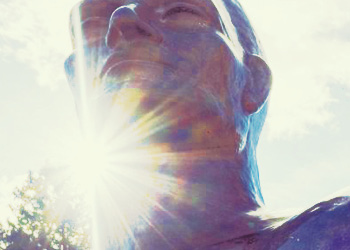Sports: Major Events in MSU Hockey

Ron Mason decides to cap his legendary career, but not before setting a world record in hockey attendance.
Other than the outdoor game that shattered the world record for hockey attendance, the 900th win for the winningest coach in college hockey and his retirement after 36 years in the game, it was business as usual for MSU icers.
The Spartans were among the nation's top five teams the entire season and led the Central Collegiate Hockey Association all but two weekends. Junior goaltender Ryan Miller, the 2001 Hobey Baker Memorial Award winner, was outstanding again. MSU’s defense allowed the fewest goals in college hockey, top returning scorers Adam Hall and Brian Maloney came through, while heralded rookies lived up to the advance billing.
After CCHA regular-season and playoff championships and an NCAA Frozen Four appearance, the Spartans entered 2001-2002 ranked No. 1 in both national polls. The team's first test was the ballyhooed "Cold War," where, in front of a world-record 74,554 fans (see Lasting Impressions, Winter 2002) at Spartan Stadium it tied archrival Michigan 3-3 in overtime. With the goalie pulled, freshman Jim Slater scored with 47 seconds left to even the score.
"What a great feeling," said Slater after the game. "The puck was right there and I just shot it."
"No matter what happened in this game, MSU was the big winner," says Mason, who becomes MSU’s athletics director. "If we had lost, Michigan State would have won because what happened here. It was just great. The ice was good, the crowd was great and you had two good teams playing very well for an opening game."
Shortly thereafter, after beating Lake Superior State twice, the Spartans notched win No. 900 for Mason at Munn Ice Arena Oct. 20, courtesy of a Miller shutout, naturally. The East Lansing native turned aside 23 shots en route to a 2-0 win against Ferris State.
"It was another win until I walked out onto the ice and I saw the other (MSU head) coaches and Slap Shots," recalls Mason, referring to the Spartan hockey student section, run by the MSU Alumni Association’s Student Alumni Foundation. "I couldn't believe it when (the coaches) walked out. To see my cohorts—that's something I'll never forget."
Many expected Mason to be behind the bench for career win No. 1000, but the longtime MSU mentor announced in January his retirement from coaching following the season to become MSU’s 16th A.D. He finished with 924, after a first round NCAA regional loss to Colorado State in Ann Arbor.
The Spartans finished second to Michigan in the CCHA race, but that didn't dampen spirits at Munn Ice Arena March 2, when a 2-0 MSU shutout - what else? - preceded a formal sendoff to Mason in his last regular-season appearance in East Lansing.
Following a video tribute and a congratulatory speech from current director of athletics Clarence Underwood, Mason saluted Spartan hockey fans for the loyalty to the program. "It was pretty neat that everybody stayed around," says college hockey's all-time winningest coach. "You never think this is going to come to an end, and it isn't yet really from a coaching perspective. This is kind of a finality in terms of myself with the fans and having a chance to acknowledge them.
"I know a lot of these people because they've been here for 23 years. They came back when we weren't winning and they came back in 1979 when the rink was half full. They're very loyal people and we've been able to keep that together and it's part of the reason that Spartan hockey is where it's at.”
RICK COMLEY TAKES OVER
Rick Comley, former Northern Michigan athletics director and hockey coach, takes over as new MSU hockey coach. In his 29 years as head coach, Comley won two CCHA and two WCHA “Coach of the Year” awards and an NCAA championship in 1991. Comley played for Ron Mason at Lake Superior State and was Mason’s assistant there, taking over after Mason left for Bowling Green. He boasts 597 wins, seventh most all-time in college hockey. As NMU’s AD from 1987-2000, he spearheaded the building of the $21 million Superior Dome, the $12 million Berry Events Center, and the Tom Izzo-Steve Mariucci Academic Center.